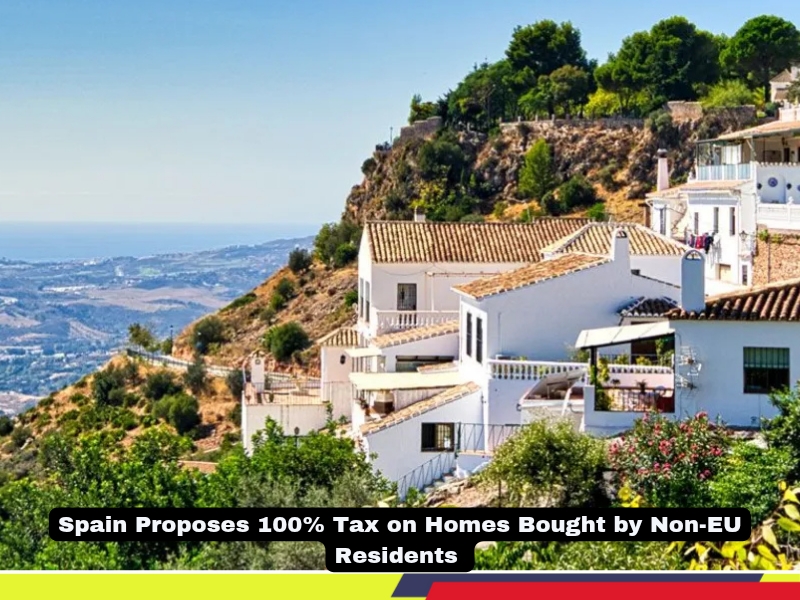Spain is taking bold steps to address its growing housing crisis, with Prime Minister Pedro Sánchez announcing plans to impose a tax of up to 100% on the value of properties purchased by non-residents from outside the European Union (EU). This move, described as “unprecedented,” aims to curb real estate acquisitions by foreign buyers, particularly those using properties for investment purposes rather than residence.
Tackling the Housing Emergency
Speaking at an economic forum in Madrid, Sánchez outlined the rationale behind the proposal:
“The West faces a decisive challenge: To not become a society divided into two classes, the rich landlords and poor tenants.”
He highlighted that non-EU residents had purchased 27,000 properties in Spain in 2023, often to generate profit rather than for personal use. In the context of a severe housing shortage, Sánchez emphasized that such practices are unsustainable.
Prioritizing Residents
The proposed tax is designed to prioritize homes for residents, ensuring locals have greater access to affordable housing. While details of the legislation remain scarce, Sánchez’s office confirmed the measure would target “non-resident non-EU foreigners.”
Under Spanish law, individuals are classified as non-residents if they live in the country for fewer than 183 days per year. The proposed tax aligns with similar measures in countries like Denmark and Canada, where property taxes for foreign buyers have been used to regulate housing markets.
Impact on the Housing Market
Foreign buyers currently account for about 15% of Spain’s housing market, with 87,000 of the 583,000 total property sales in 2023 attributed to non-residents, including EU citizens. However, the new measure focuses solely on buyers from outside the EU, including the UK.
The proposal has sparked debates over its potential impact on Spain’s economy, particularly in popular regions like the Costa del Sol and Balearic Islands, where foreign investment in real estate is significant.
Next Steps
The Spanish government has stated that the proposal will undergo “careful study” before being finalized and presented to parliament. However, Sánchez’s coalition government has faced challenges in securing enough votes for major legislation in the past, raising questions about the measure’s future.
If implemented, this tax could reshape Spain’s property market, balancing the scales between investors and residents while addressing the nation’s pressing housing challenges.




